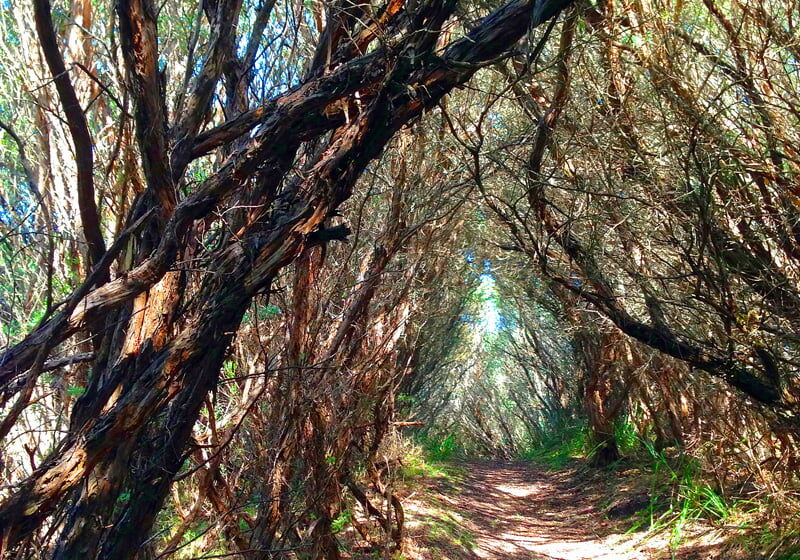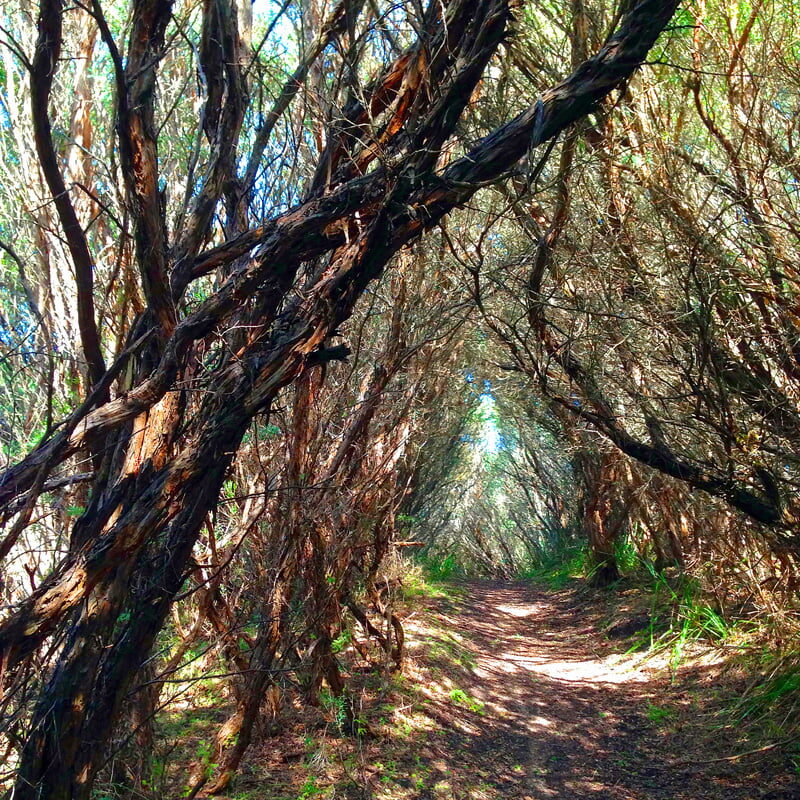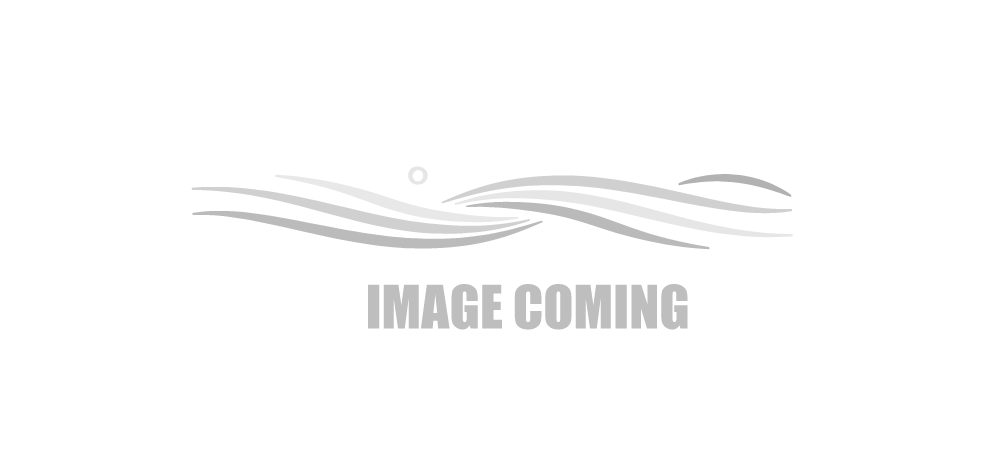Tread Softly


Walk Softly To protect our bushland
Victoria's bushland areas are a valuable and fragile recreational resource. They need to be protected and nurtured so that we and future generations can enjoy them. Everyone who visits these areas needs to act in ways that help preserve them.
Some of the things you can do to leave no impact are :
Make all parties small parties
By keeping the numbers in your party small you will reduce the impact on the area you are visiting. Small parties place less pressure on tracks and campsites.
Keep to the track
To prevent erosion and damage to sensitive native vegetation, keep to established tracks where they exist. The terrain and vegetation beside tracks are damaged when walkers cut corners or walk beside a track. In sensitive areas such as alpine bogs damaged vegetation can take generations to recover. In open, untracked country, spread out to disperse any damage to the terrain and vegetation.
Use existing campsites
Wherever possible, camp at an existing campsite or an existing clearing with firm and level ground. Never trample or remove vegetation to create a campsite.
Leave campsites in the same or better condition than when you arrived.
Use a stove to cook
Cooking with a stove is more environmentally friendly than cooking over a fire. Stoves are safer and do not require the use of precious and scarce wood.
Take care with campfires
Campfires are generally unnecessary. If you choose to have a campfire, light it only where permitted and only in a provided fireplace.
Most parks prohibit the collection of firewood because fallen timber provides vital shelter and food for native birds, animals and insects. Where a campfire is permitted, use either specifically provided wood or wood that you brought with you.
Having a campfire in hot or windy weather is irresponsible and dangerous as flying embers can start a bushfire.
Never leave a campfire unattended, even for a minute.
Ensure that the campfire is thoroughly extinguished and the ashes are cold before leaving the campsite. Use water rather than soil to quench the fire. Spread the cold ashes before you leave the campsite.
Protect water resources
In summer and autumn, water is often scarce, and in heavily used areas water quality is sometimes degraded by careless practices.
Wash your body and cooking utensils and equipment at least 50 metres from a water source to prevent pollutants or infectious microorganisms entering the water. Scatter the used water so that it is filtered on its way back into the watercourse.
Preserve the purity of rivers and streams by not using soap to wash dishes or cooking utensils. Sand, grass or a kitchen scourer can be used to clean utensils.
Bury toilet wastes
In areas without a toilet or if the toilet is full, bury human waste. Carry a small shovel or trowel to dig a hole in which to bury your faecal waste and toilet paper 15 cm deep at least 100 metres from campsites, water sources and tracks. In snow, try to find a place where you can dig through to the soil.
Bury toilet paper rather than hide it under a rock because it needs soil and moisture to degrade quickly.
Carry out sanitary pads or tampons as they will not degrade.
Carry out all rubbish
Plan your trip to minimise rubbish generation. Avoid taking unnecessary packaging, bottles, tins and aluminium foil.
Carry out all your rubbish. It is no longer acceptable practice to burn or bury rubbish. Do not leave anything behind because you think it is natural or biodegradable.
If possible clean up and carry out the rubbish left behind by inconsiderate bush visitors.
Respect flora and fauna
Try not to damage plants during your walk and at campsites. Do not use fallen or living timber as firewood. Do not collect plants or seeds to take home.
Do nothing that will destroy or unnecessarily interfere with the habitat of birds and animals.
Do not feed birds and animals because it may make them sick or may make them dependent on humans, which will reduce their ability to survive in the wild.
Comply with biosecurity measures
Prevent the spread of plant and soil pathogens, weeds and prohibited plants by keeping to established tracks and campsites as much as possible. Obey no entry signs to areas of vegetation that have been quarantined. Use hygiene stations located on tracks.
Dirty equipment contributes to the spread of soil and plant pathogens, weeds and prohibited plants from area to area. Carry a small brush to remove gravel, soil, mud and plant matter from camping and hiking equipment before moving to the next campsite.
At home wash all items of clothing and disinfect all items of equipment used in a known contaminated area.
